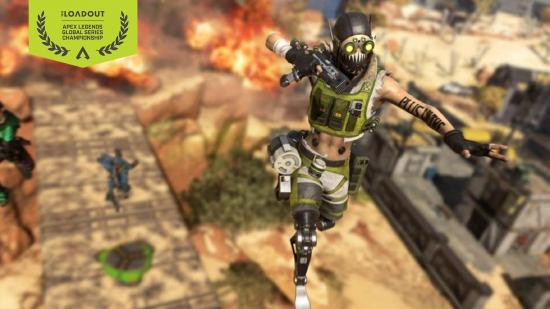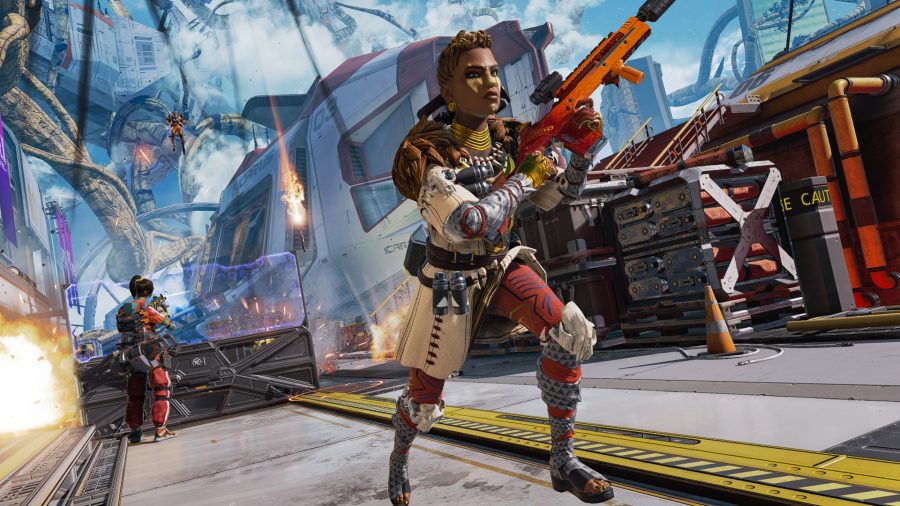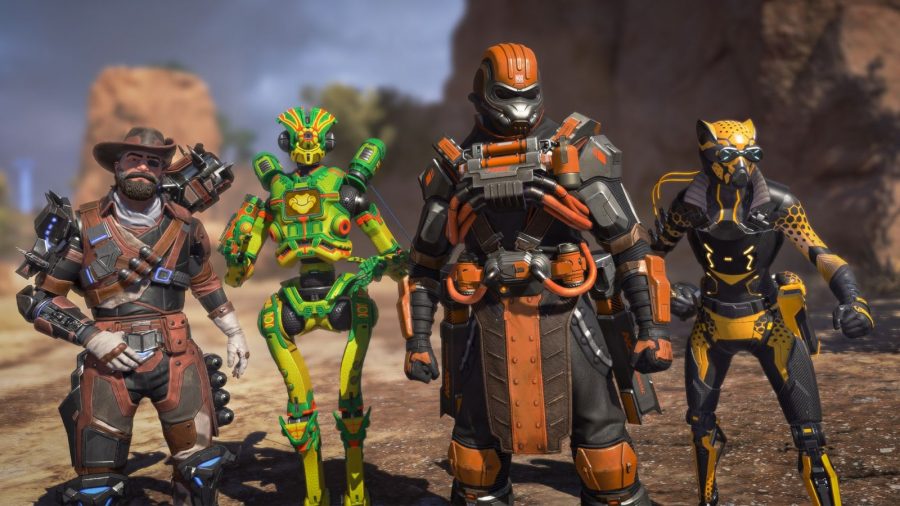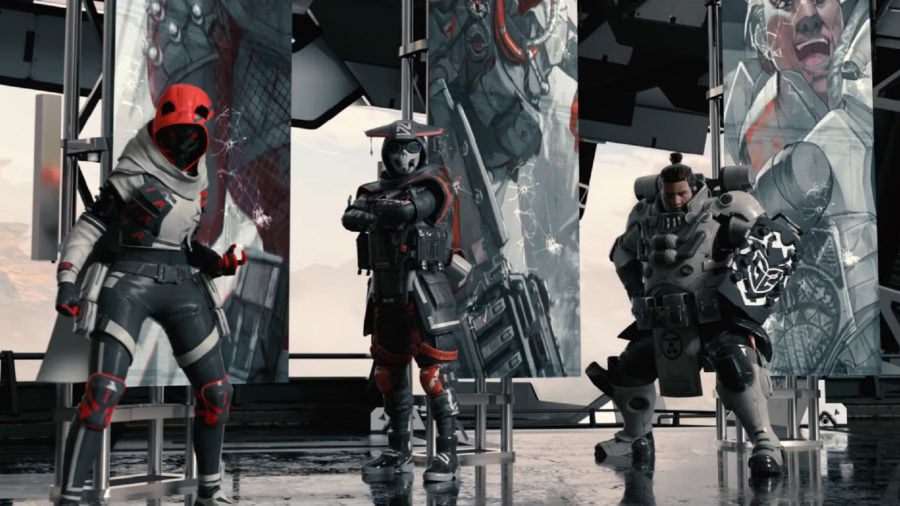The first season of the Apex Legends Global Series has come to a close, culminating in the intense month-long ALGS Championship competition. Over the past 18 months, Apex Legends esports has gone from practically a non-entity – with only a couple of show matches and one-off tournaments – to hosting a worldwide tournament with a $2.5 million prize pool.
With BLAST and Dreamhack also looking to get in on the Apex Legends esports action, things are looking positive for the battle royale’s high-level scene. However, the journey hasn’t been easy. The first major Apex Legends events, the EXP Invitational at X Games Minneapolis and the Preseason Invitational hosted in Kraków, Poland, were held in August and September 2019 respectively. Since then, fans haven’t been able to attend a single tournament in-person, and players have been forced to play online for reasons beyond their control.
The effects of the global pandemic on the esports industry are clear, but the Apex Legends Global Series was set to launch just as lockdowns began and events shut down. As such, ALGS commissioner John Nelson had to scrap his roadmap of a year of in-person tournaments and adapt to an era of online competition.
“COVID threw us a curveball,” Nelson tells The Loadout. “But to come out the other end to where we’ve ended up – in terms of a global series, competition all over the world, generating amazing viewership with high level play everywhere – in a season where we had to be online only, I’m thrilled.”
He is well underway with preparations for Season Two of the ALGS, but Nelson is also using the offseason as a chance to look back and take stock of what the competition has become. While they were a product of the demands of the pandemic, Nelson believes that online tournaments have actually benefited some teams, especially those from less mainstream regions.
“This season has afforded us regional storylines and the establishment of a regional pecking order and regional champions,” Nelson explains. “Those regional champions are now household names, and we can go into future events asking who is going to reign supreme – and fans know the big guns from each region.”
One player’s 6,000-mile journey to the ALGS Championship
How many people had heard of Paradox Esports before it took home the South American ALGS Championship trophy? The region doesn’t get a lot of love from US and EU-centric tournaments, sponsors, or the media, but the support and streams at the Championship may have changed that. That said, Nelson is incredibly excited to get back to live events and to Apex tournaments that he’d imagined back in 2019 – “I can’t wait until we’re able to bring the best from each region back together to see who the best in the world is.”
But that doesn’t mean change isn’t on the table. Nelson is still judging what worked and what didn’t in the online format, as well as what was unavoidable, and what could be improved. One thing he is certain of is that online competitions had competitive integrity, noting that there was “no evidence” of cheating at the ALGS Championship after Athaim’s claims of the contrary.
“We investigate cheating allegations,” he says. “We work diligently to prevent, first of all, that cheaters are even able to register for our competitions. But we also have no evidence to suggest that there was any cheating in APAC South or any of the other regional Championship Finals.”
Nelson and his team fully investigated the allegations and found nothing to support them, and he is confident that the online season was fair. However, with other aspects of the tournament, he’s open to comments from the community. “We are always open to feedback,” he says. “And the offseason is a great time for us to reflect and assess things like the point system.”
Read more: how Loba stole the show at the ALGS Championship
Apex Legends’ Match Point format is somewhat controversial, with some players and vocal fans complaining that it adds too much RNG into the battle royale. Nelson, however, likes where it’s at. “There’s no denying the power of the Match Point format in terms of generating drama and enthusiasm around the competition,” he says.
Most people don’t dispute that the system creates exciting moments – game seven and eight of the NA ALGS Championship Finals saw teams seconds away from clutching victory, only for ESA Black and Sentinels to keep the competition going for one more round on each occasion. But Nelson also believes that Match Point allows for a variety of strategies to be viable.
“The balance that we have between placement points and kill points allows for a differentiation of strategy,” he says. “It allows for success, both in teams that are more survivalist and teams that are more aggressive. Both of those types of strategies can be successful. Sometimes it’s a survivalist team that wins and sometimes it’s the more aggressive team that wins.”
The Match Point system has only been marginally tweaked since Poland nearly two years ago, adding seeding points for teams that qualify well in order to reward consistent teams and make tournaments a little bit shorter than the Kraków Killer – a mammoth 11-round showdown. However, EA’s esports team has adapted quickly to other requests from pro players. One example is that Nelson and his team have focused on reducing fatigue during tournaments that can potentially go on forever (but tend to go for seven or eight rounds).
“Something that we’ve done to address player fatigue is having breaks between games,” Nelson says. “The players have a certain amount of time between every single game where they’re able to relax, recover, and strategise.” While teams that are eliminated early have a longer rest, the ALGS organisers have implemented longer breaks into the competition so that every player can get the rest they need.
“Every several games, we do an extended break beyond what the players usually get. So, should we see another 11-match series – or beyond – the things that we’ve put in place to allow for the breaks in between games would address the player fatigue better than what we saw in Poland.”
One element of the ALGS Championship that was significantly different from the Preseason Invitational was the group stages. Back in 2019, the top teams were selected by a double-elimination bracket, whereas the 2021 Championship group stages used a system more inspired by traditional sports.
“It was a unique group stage because it’s battle royale,” Nelson explains. “So when you think of the group stage in a traditional sport, or even a lot of esports that I’ve watched in the past, the groups are fairly small. If you think about the [football] World Cup, for example, it’s four-team groups. So we took inspiration from both traditional sports and esports to create that.”
Nelson and his team take inspiration from wherever they can find it, and aren’t resting on their laurels despite the hurdles that the global pandemic has thrown at them. They are still testing and tinkering, trying new things, and seeing what formats work best for battle royale competition at the highest level.
As if adapting to online competition and creating a whole new format for the group stages wasn’t difficult enough, EA has been experimenting with other systems to make the ALGS more exciting for both players and fans. Twitch Drops were incorporated into tournament livestreams this year, and the sales of in-game skins added over $1.5 million to the ALGS Championship prize pool, more than doubling the original total.
Nelson remains tight-lipped about whether these systems will return, but the trials were tests to see how the community responded. Seeing as Twitch Drops were first tested at the Winter Circuit Playoffs and returned for the EMEA and NA Championship Finals, it’s fairly safe to assume that they’re here to stay. He is pleased with how the community responded to the prize pool-enhancing cosmetic bundles, too.
“I’m so happy with how that program turned out,” says Nelson. “The players have been competing for a long time and I’m really happy about how it turned out to get to more than $2.5 million. We used this program to test and learn – it’s a first of its kind for EA and for Apex Legends.”
As for why the program was capped at adding a maximum of $2 million to the Championship prize pool, that was another method of testing the waters.
“We wanted to see how the community would react,” says Nelson simply. “And now we know, so we’ll take everything that we’ve learned into the future for any potential feature program.”
An insight into Nessy’s rocky road the ALGS Championship
Apex Legends involves its playerbase in every aspect of the game, from fan-created lore comics published on social media, to supporting pro players by boosting tournament prize pools. This not only engages fans with every aspect of the game, but also contributes to the longevity and sustainability of the esport. The cap still doesn’t make a lot of sense – after all, EA pocketed 80% of the revenue from each bundle sold, with the remaining 20% going towards the Championship prize pool – but Nelson is clearly excited at the idea of the community coming together to reward players. However, he remains deliberately vague about similar programs in future, including programs which could include the addition of team skins to the game.
This fan-designed concept would be similar to systems in Rainbow Six Siege, which sells in-game character skins inspired by team jerseys and colours, where 30% of the revenue is given directly to the teams.
“I’ve seen the [fan-made] skins, there are some really cool ones and some really talented artists out there who’ve concepted some designs,” he says. “We’re always looking to traditional sports and to other esports, and what’s been successful, to see if there is a way that we can do that, and potentially do that better. We’re always thinking about doing new and innovative things and reformatting successful programs that we’ve seen elsewhere.”
One such reformatted program is EA’s variety of streams available to watch, which have increased over the course of the first ALGS season. The official broadcast is usually the biggest draw, but TSM player Phillip ‘ImperialHal’ Dosen’s Championship POV stream (to take one high-profile example) drew as many as 89,208 viewers to the Finals, according to TwitchTracker. For the group stages, concurrent matches were streamed by official partners like Hector ‘Dazs’ Felix on their own channels, and many influencers hosted watch parties throughout the tournament.
“I just think the variety, the choice that people have means there’s a gigantic community that’s interested in watching the ALGS,” says Nelson. Matches from outside NA and EMEA were shown on partner streams like gglongshot or BBLesports covering APAC South and South America respectively on Twitch, and official APAC North streams happened on Mildom and YouTube. However, Nelson points out that these regions could broadcast on the main Twitch channel if they wanted to.
“[Streaming on the PlayApex Twitch channel] is an option they have,” he says. “And if in the future that’s what they desire, then we would take them up on that as well.”
Nelson believes that offering so many viewing options across a variety of websites is key to the ALGS’ success. He tells The Loadout that the Championship achieved “record breaking viewership for us on many different levels,” although the numbers haven’t been finalised yet. Between the host of different streamers and platforms, there’s a lot of data to tally, but Nelson is keen to push forwards as well as looking back.
With a record-breaking ALGS Season One wrapped up and planning for Season Two well underway, he insists that the future of Apex Legends esports is bright – and that is largely down to the fans who tune in to watch every few weeks.
“Thank you,” he says directly to the ALGS fans who have made this season so special. “I’m thankful for all the fans who stuck with us through the Apex Legends Global Series and for all of the new fans who have come along in this amazing run that we’ve had with the Winter Circuit and into the Championship. The other thing I would say is, get ready, because there’s a lot more ALGS action coming your way. If you enjoyed what you saw in the last few months or even just last weekend, you’re going to be really excited for what’s around the corner.”



